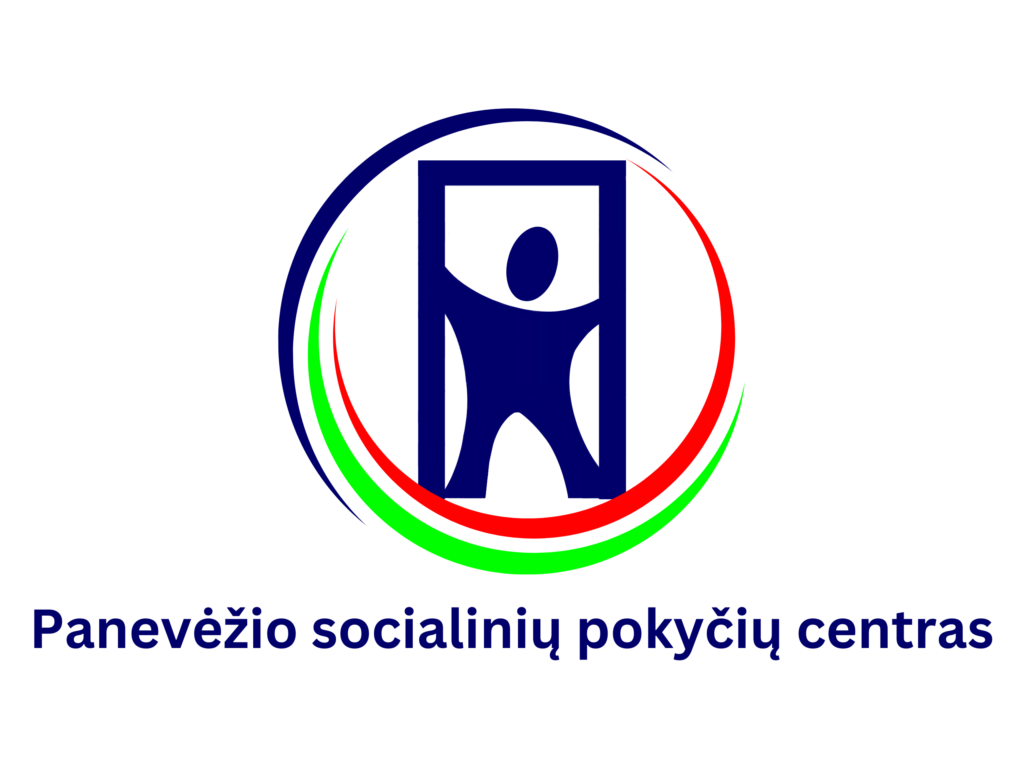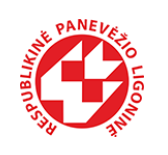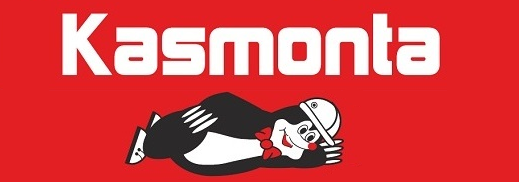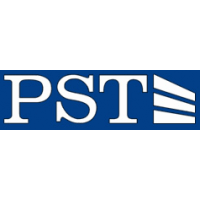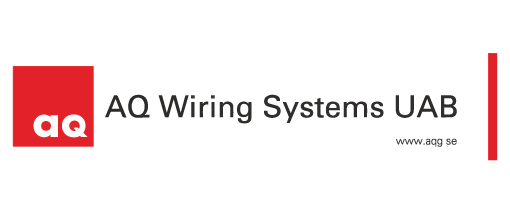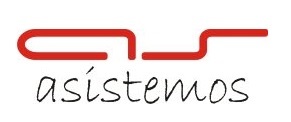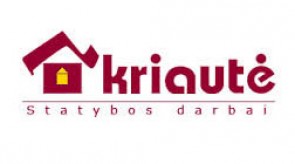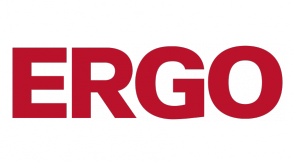Sustainability
The greatest threat to our planet is the belief that someone else will save it.
Robert Swan
In the 21st century world, SUSTAINABILITY is the only right direction. It is an integral part of our institution and the essence of our values. We believe that we can set an example and encourage other organisations to pursue sustainable development goals.
A sustainable college:
- Empower global citizens for sustainable development (EDUCATION);
- Discover answers to important social questions (RESEARCH);
- Achieve a zero footprint for campus operations (OPERATIONS);
- Empower students and staff to act on sustainability (COMMUNITY);
- Make sustainability a priority for your organisation (GOVERNANCE).
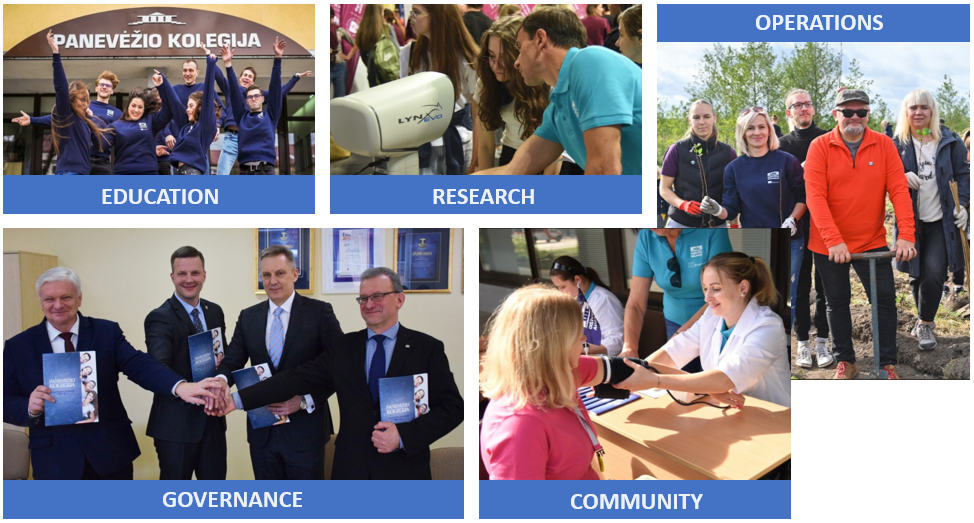
WE SUPPOPRT
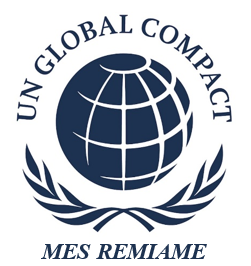
Since 2011, Panevėžys College has been a member of the United Nations (UN) Global Compact, thus contributing to the implementation of sustainable development goals. The College aims to make the ten principles of the Compact and the 17 Global Sustainable Development Goals part of the organisation’s culture and daily work.
WE IMPLEMENT
17 sustainable development goals
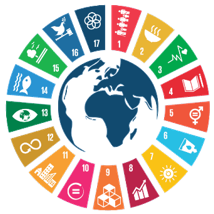
Quality and environmental management system
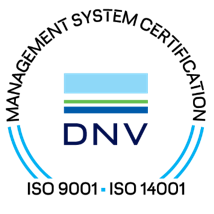
10 principles of the Compact
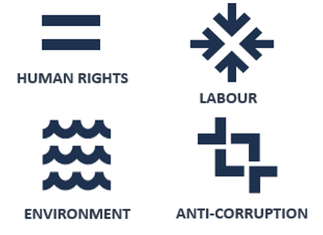
ACHIEVING THE 10 GLOBAL COMPACT PRINCIPLES
By implementing these principles, we contribute to the international community’s efforts to ensure global justice and sustainability. The College chooses the international agreements and principles it can implement, taking into account the specificities of its activities and resources, to contribute to the promotion of international sustainability goals and values and to encourage students and staff to become members of the international community.
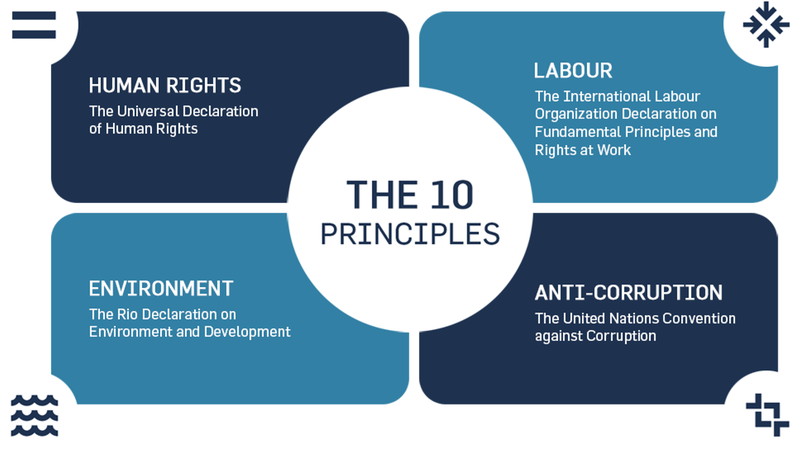
![]()
1 PRINCIPLE: Businesses should support and respect the protection of internationally proclaimed human rights; and
2 PRINCIPLE: make sure that they are not complicit in human rights abuses.
![]() 3 PRINCIPLE: Businesses should uphold the freedom of association and the effective recognition of the right to collective bargaining;
3 PRINCIPLE: Businesses should uphold the freedom of association and the effective recognition of the right to collective bargaining;
4 PRINCIPLE: the elimination of all forms of forced and compulsory labour;
5 PRINCIPLE: the effective abolition of child labour; and
6 PRINCIPLE: the elimination of discrimination in respect of employment and occupation.
![]()
7 PRINCIPLE: Businesses should support a precautionary approach to environmental challenges;
8 PRINCIPLE: undertake initiatives to promote greater environmental responsibility; and
9 PRINCIPLE: encourage the development and diffusion of environmentally friendly technologies.
![]()
10 PRINCIPLE: Businesses should work against corruption in all its forms, including extortion and bribery.
The College’s implementation of these principles is reflected in the Global Compact reports submitted to the United Nations:
Agenda for Sustainable Development Goals 2030:
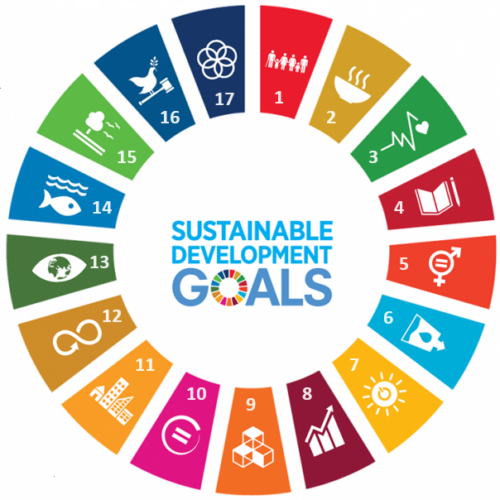
1. No poverty;
2. Zero hunger;
3. Good health and well-being;
4. Quality education;
5. Gender equality;
6. Clean water and sanitation;
7. Affordable and clean energy;
8. Decent work and economic growth;
9. Industry, innovation and infrastructure;
10. Reduced inequalities;
11. Sustainable cities and communities;
12. Responsible consumption and production;
13. Climate action;
14. Life below water;
15. Life on land;
16. Peace, justice and strong institutions;
17. Partnerships.
HOW WE ACHIEVE SDGs
 |
GOAL 1. NO POVERTY
1.1. High-quality education is the way to avoid poverty. |
 |
GOAL 2. ZERO HUNGER
2.1. Developing and promoting healthy eating habits and competences. |
 |
GOAL 3. GOOD HEALTH AND WELL-BEING
3.1. The College trains healthcare professionals in five fields of study in the health sciences and provides professional development services. |
 |
GOAL 4. QUALITY EDUCATION
4.1. College mission – carry out higher education studies based on scientific knowledge and practical skills, providing students with modern competencies that have added value in the smart society. We focus the region’s potential on the implementation of the lifelong learning principles and the development of scientific applied activities. |
 |
GOAL 5. GENDER EQUALITY
5.1. The College promotes gender equality and combats gender inequality by ensuring that all students have equal opportunities to learn and develop their careers. |
 |
GOAL 9. INDUSTRY, INNOVATION AND INFRASTRUCTURE
9.1. Collaborating with industry and other social partners to implement innovative, technologically advanced and sustainable solutions, and carrying out applied research. |
 |
GOAL 10. REDUCED INEQUALITIES
10.1. The College contributes to the reduction of inequalities in a number of ways, in particular through the provision of higher education and other opportunities for students from different socio-economic groups: |
 |
GOAL 11. SUSTAINABLE CITIES AND COMMUNITIES
11.1. The College contributes to a sustainable city and community through a range of activities and initiatives that promote economic, social and environmental sustainability: |
 |
GOAL 12. SUSTAINABLE CONSUMPTION AND PRODUCTION
12.1. The College pursues responsible consumption in a variety of ways: |
 |
GOAL 13. CLIMATE ACTION
The implementation of the ISO 14001 Environmental Management System is one of the ways to contribute to the concept of sustainable development and to systematically manage the College’s environmental impact. |
 |
GOAL 16. PEACE, JUSTICE AND STRONG INSTITUTIONS
Legal and justice education is an important tool for making progress in these important areas. The College can contribute to peace and justice in a variety of ways by promoting education, intercultural dialogue, justice, and social responsibility: |
 |
GOAL 17. PARTNERSHIPS
The College’s partnerships with other organisations are key to achieving a wide range of objectives, which include study, research, social responsibility, and other areas: |
ENVIRONMENTAL POLICY

The College is guided by the requirements of the international standard ISO 14001 Environmental Management System. The College’s management and the community as a whole, in the implementation of its long-term strategy, focuses on the development of innovative solutions and sustainable development, in accordance with the principles of environmental protection, social responsibility and good corporate governance, and commits itself to comply with the requirements of the environmental legislation and the provisions of the Environmental Policy in all its activities.
The provisions are implemented in accordance with the following guidelines:
- keeping curricula up-to-date by integrating environmental themes into subject/module descriptions;
- developing innovative learning and practice modules on sustainable development, environment
- establishment and use of a laboratory complex to strengthen study and research activities in the field of sustainable energy process improvement;
- improving the energy performance of college buildings through infrastructure projects;
- saving natural resources by optimising infrastructure and introducing renewable and alternative energy sources.
- saving electricity, paper, raw materials and other resources, using better quality and less environmentally hazardous materials and tools, and quality equipment;
- purchasing goods, services or works with the lowest possible environmental impact at one, several or all stages of the life cycle of a good, service or work (green procurement);
- systematically planning and coordinating the efficient use of the College’s motor vehicles and improve the infrastructure for the use of environmentally friendly vehicles;
- managing waste rationally, and using substances harmful to the environment only in accordance with environmental requirements and the procedures established by the College:
− using chemical preparations rationally and purposefully in economic activities;
− maintaining a permanent system for the management of materials and packaging as secondary raw materials;
− keeping records of waste generation and management in the unified product, packaging and waste accounting information system GPAIS;
− introducing measures to reduce the consumption of writing paper and improve the collection of paper waste. - ensuring that the staff is familiarised with the Environmental Policy of Panevėžys College and has sufficient knowledge to implement it.

